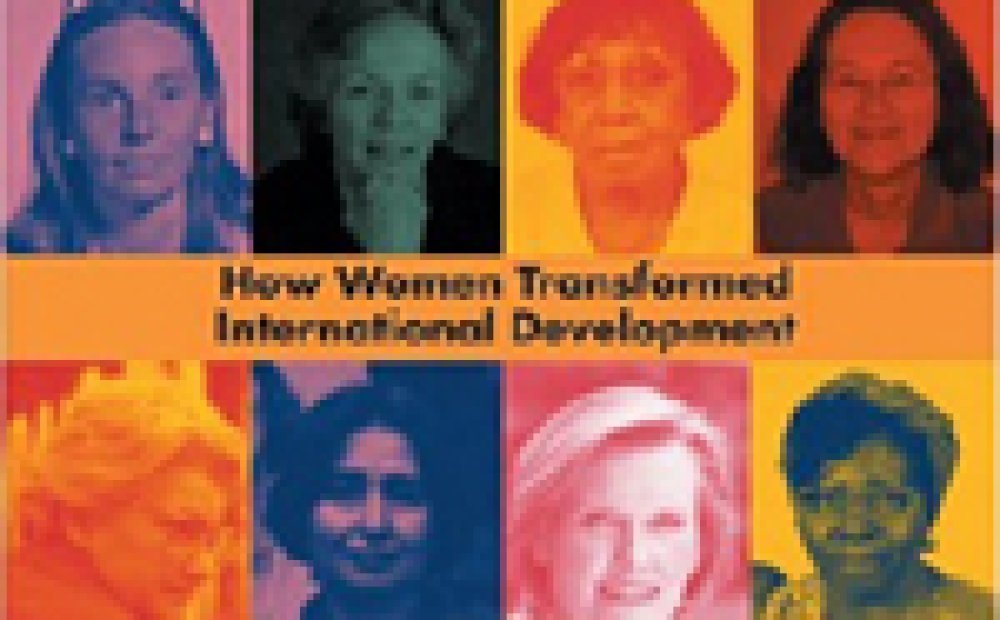Book Launch: Developing Power: How Women Transformed International Development

Recognizing the crucial role that women and women's issues play in international development is a relatively new phenomenon. In Feminist Press' new book, Developing Power: How Women Transformed International Development, 27 women from 14 countries describe their work in international development. Editor Irene Tinker and co-authors Aziza Hussein and Vivian Derryck launched the book at a Woodrow Wilson Center meeting on November 18, 2004.
Over the course of her career, Tinker became intrigued by how women have shaped—and have been shaped by—international development. As she pointed out, most political scientists do not write about themselves; to remedy this, she invited some of her colleagues to contribute brief personal memoirs, describing how they became involved in making policy and how they changed the global agenda, sometimes without even knowing it.Tinker found two main drivers steered women into development. Post-World War II reconstruction and economic modernization increased the flow of money to women, who had demonstrated their vital role as agricultural and economic actors during the war. These changes created opportunities for elite women to become paid community and political organizers, where they may have previously hosted social events or done charity work instead. Tinker commented, "As those elite women, who were often, in many countries, further removed from the poor women than perhaps even the foreign aid workers, suddenly began to see commonalities about the inheritance problems, about polygamy, and wife beating, and began then to lobby at the national levels."
Dr. Aziza Hussein, chair of the National Center Supporting NGOs in Population and Development, noted that while interactions between elite and poor women increased, communication barriers on sexual issues led many urban women to overlook reproductive health issues that primarily impacted rural women, such as female genital mutilation. She highlighted the need to understand women's lives and culture at the grassroots level before trying to reshape the legal and political framework.
Vivian Derryck, senior vice president at the Academy for Educational Development, pointed out that the United Nations provided a safe space for radical ideas, and offered opportunities for networking and collaboration at conventions and international meetings. Derryck suggested that women use the sustainable development paradigm to put women's issues back on the agenda. Referring to Isobel Coleman's "The Payoff from Women's Rights," Derryck outlined the numerous benefits of such an approach, not only for women but also for sustainable development and democracy efforts around the world.
Despite the success of the international women's movement, recent declines in funding have disproportionately impacted women's organizations and programs. How can the gains that women secured survive this period? Tinker asserted that women should increase their participation in politics to resist the rollback of progressive policies. Derryck mentioned that National Security Advisor Condoleezza Rice's new position as secretary of state could potentially increase support for women in development under the Bush administration. According to Anne Walker of International Women's Tribune Center, however, NGOs and civil society must take an active role in order to continue pushing women's development issues. Ultimately, they will decide whether women are left out of international development.
Speakers

Hosted By

Environmental Change and Security Program
The Environmental Change and Security Program (ECSP) explores the connections between environmental change, health, and population dynamics and their links to conflict, human insecurity, and foreign policy. Read more


Maternal Health Initiative
Housed within the Wilson Center's Environmental Change and Security Program, the Maternal Health Initiative (MHI) leads the Wilson Center’s work on maternal health, global health equity, and gender equality. Read more
